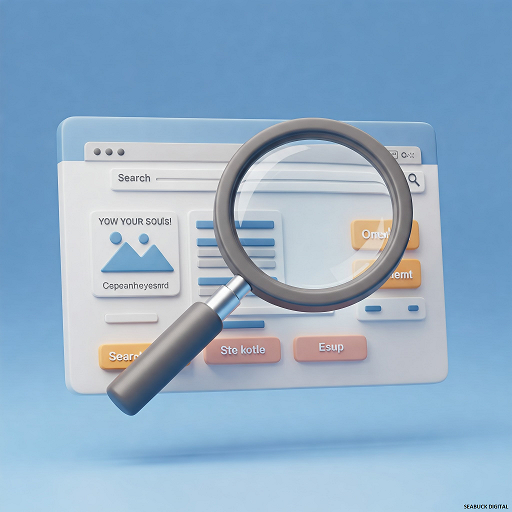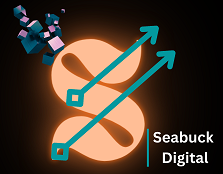
Introduction to SERP Analysis
What is SERP Ranking?
SERP stands for Search Engine Results Page. When you search for anything on Google or Bing, the list of links that shows up is the SERP. Your position on that page—whether it’s spot #1 or buried on page 5—is your SERP ranking. Pretty important, right?
Why SERP Analysis is Crucial for SEO?
If you’re not showing up in the top results or to be precise in the SERP rankings, you’re practically invisible online. SERP analysis gives you the insights to tweak your content, build better backlinks, or optimize on-page SEO to climb those ranks.
How SERP Tools Help SEO Professionals
Manually Googling keywords and counting your position is a huge waste of time. SERP tools automate this with precision. They track changes, show competitor positions, and sometimes even tell you why you gained or lost a spot.
Key Features to Look for in SERP Analysis Tools
Real-Time Ranking Updates
Google is constantly shifting rankings based on hundreds of factors. Good tools give you near real-time data so you’re always in the loop.
Keyword Position Tracking
You should be able to track specific keywords and see how they move over time. Bonus points if the tool gives you graphs, trends, and alerts.
Competitor Monitoring
Who’s outranking you and why? SERP tools can show you who’s ahead and give insight into what they’re doing right.
Historical Performance Data
Seeing how your rankings have evolved helps you spot patterns. Did you drop after a Google update? Did your new blog post shoot you to the top?
Geo-specific Ranking Insights
Ranking #1 in New York but invisible in LA? Location-specific tracking is a must if you’re doing local SEO or targeting different regions.
Best SERP Analysis Tools in 2025
SEMrush
Check out SEMrush Free SERP Checker Tool | Analyze Google SERPs
Key Features
- Daily ranking updates
- Position tracking for desktop and mobile
- SERP features tracking (featured snippets, people also ask, etc.)
- Keyword cannibalization alerts
Pros & Cons
Pros: Super detailed, great for agencies, has tons of other SEO features
Cons: A bit pricey for solo users
Ahrefs
Check out AHREFS Free SERP Checker
Key Features
- Accurate keyword position tracking
- SERP overview snapshots
- Competitor gap analysis
- Alerts for SERP changes
Pros & Cons
Pros: Excellent for backlink analysis + SERP tracking
Cons: Doesn’t update daily by default unless you’re on higher plans
SERPWatcher by Mangools
Check out SERPWatcher: Free & Accurate SERP Rank Tracker
Key Features
- Simple and clean interface
- Performance index to score your SEO progress
- Email alerts for major ranking changes
Pros & Cons
Pros: Affordable, beginner-friendly, nice UX
Cons: Lacks deep competitor insight
Moz Pro
Check out Moz to Analyze the SERP for a given keyword
Key Features
- Keyword rankings over time
- Visibility scores
- Local and national tracking
- Easy to integrate with Google Analytics
Pros & Cons
Pros: Trusted brand, decent support, user-friendly
Cons: Lags a bit behind SEMrush in features
SE Ranking
Check out Real-time SERP Tracker of Your Competitors by SE Ranking
Key Features
- Accurate rank tracking
- Competitor comparison
- SERP history and snapshots
- Local pack tracking
Pros & Cons
Pros: Budget-friendly, white-label reports
Cons: UI could be better
AccuRanker
Check out Free Google SERP Checker by AccuRanker
Key Features
- Blazing fast updates (every 24 hours or on-demand)
- Google Data Studio integration
- Shareable live reports
Pros & Cons
Pros: Ultra-fast, perfect for agencies
Cons: Pricing can add up if tracking many keywords
Wincher
Key Features
- Daily updates
- On-page SEO suggestions
- Integration with Google Search Console
Pros & Cons
Pros: Great for small teams and freelancers
Cons: Lacks backlink data
Nightwatch
Key Features
- Advanced segmentation
- Visual ranking dashboards
- Local and global tracking
Pros & Cons
Pros: Sleek design, good for detailed reports
Cons: Not very beginner-friendly
Serpstat
Key Features
- Universal search tracking
- Custom reports
- Bulk keyword tracking
Pros & Cons
Pros: All-in-one SEO suite
Cons: Can feel bloated for simple tasks
Google Search Console
Key Features
- 100% free
- Shows real Google search data
- Click-through rate, impressions, position tracking
Pros & Cons
Pros: Reliable data, direct from Google
Cons: Lacks depth, no competitor tracking
Comparing SERP Tools – What’s Right for You?
Budget vs. Features
On a tight budget? Tools like SERPWatcher, SE Ranking, or Wincher are solid. Have some cash to invest? SEMrush and Ahrefs give you the whole SEO toolkit.
Freelancers vs. Agencies vs. Enterprises
Freelancers might prefer tools with clean UIs and simple pricing. Agencies? Go for white-label reports, bulk tracking, and API access. Enterprises? You’ll need scalability and team management.
Data Depth vs. Simplicity
Do you want dashboards, graphs, and granular filters—or just the raw ranking data? Choose accordingly.
How to Use SERP Tools Effectively
Daily Rank Monitoring
Don’t be obsessive, but daily checks help you catch sudden drops or wins. Tools with alerts can save you from nasty surprises.
Competitor Benchmarking
Always know who’s nipping at your heels. Compare their page titles, meta descriptions, content length, and backlink profiles.
Tracking Featured Snippets & Rich Results
SERP tools now show whether your site appears in featured snippets, knowledge panels, or image carousels. Own those spots and watch your traffic soar.
Conclusion
Choosing the right SERP analysis tool is like choosing the perfect weapon for battle—depends on who you are and what you need to win. Whether you’re flying solo or running a full-scale SEO agency, there’s a perfect match out there for you. Start with your goals, try a few trials, and don’t be afraid to mix and match tools. Because in the SEO game, staying ahead means staying informed—and these tools are your front-row ticket to the top of the SERPs.
FAQs
What’s the most accurate SERP tracking tool?
SEMrush and AccuRanker are often praised for their pinpoint accuracy and fast updates.
Are free SERP tools worth it?
They’re decent for a start, but if you want in-depth insights or daily tracking, paid tools are the way to go.
How often should I track SERP rankings?
Daily for active campaigns. Weekly might be enough for evergreen content.
Can SERP tools detect algorithm changes?
Some tools highlight unusual ranking shifts that hint at algorithm updates. SEMrush and Moz do this pretty well.
Which SERP tool is best for local SEO?
SE Ranking, BrightLocal, and Nightwatch are great picks for tracking rankings in specific cities or zip codes.
Read More:

